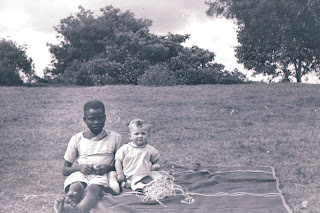Research matters
We often get so busy with urgent tasks that we don’t look further, searching the horizon.
As a grandfather who picks up a 4 ½-year-old from school, I found this fascinating: Picking up grandchildren from school can help mental health, the study concludes. Research suggests looking after grandchildren regularly may help prevent loneliness and improve well-being. For grandparents, research matters about general health and especially mental health.
A friend sent me two sayings this month: “It is not what you accomplish that matters most. It is what you set into motion.” And here’s another stimulating thought at the beginning of a year: “Write books and make furniture, paint a picture, or plant a tree. They will live longer, travel further, and last longer than you ever will.”
 |
| A new congregation begins in Western Brazil. |
Once, in the 1980s, I was part of a church-planting team. Many people undertook extensive research in the city of Campo Grande, Mato Grosso do Sul, Brazil. Those original 12 congregations multiplied into today’s 110+ churches. Before initiating Church planting, research matters.
The Biblical story of Joshua granting peace to the sly leaders of Gibeon shows how quick decisions based on emotions can lead to unhealthy choices. Interestingly, God later used Joshua’s mistake to bring about a victory. Biblically, research matters.
Few of us remember that over five million people in Colombia are Internally Displaced Persons, IDPs. During the last eight years, Dr. Christopher Hays and a large team of researchers in Medalim, Colombia, explored the painful contours of 30 years of internal armed conflicts. Overnight, and often during the night, villagers were dragged from their homes. The village leader was often killed in a barrage of bullets, and all were told to leave, given ten minutes to collect their belongings. Many ended up on the periphery of large cities, swelling the slums already a place of misery.
Applied research illustrated two great truths. First, promoting forgiveness creates a space for victims to flourish with their families
 |
| Children are greatly affected by violence |
This year, LAM Latin America Mission will ask all our missionaries three questions: 1. What additional resources are you asking God for in your ministry? 2. How might volunteers further enhance your ministry? 3. What more can the LAM office do to encourage you in your ministry?
At LAM, in 2023, research matters.







.tif)


